Vigneron CHRISTOPHE BARON’S Horsepower Vineyard embraces biodynamic farming techniques rooted in tradition and history.
PHOTOS BY Andrea Johnson
The centuries-old Champagne house, Baron Albert, has worked the family land in the Marne Valley of France since 1677. When the oldest son Christophe left France in the 1990s looking to make his own mark on the wine world, he visited with a friend in the Walla Walla Valley in the Pacific Northwest. He intended to find some land in the Willamette Valley, a famous wine-growing region about five hours southwest, on which to build his business. In the course of their discussion one night, he showed his friend a page from his “wine bible,” a book he carried with him wherever he went called the “Wine Atlas of France.”
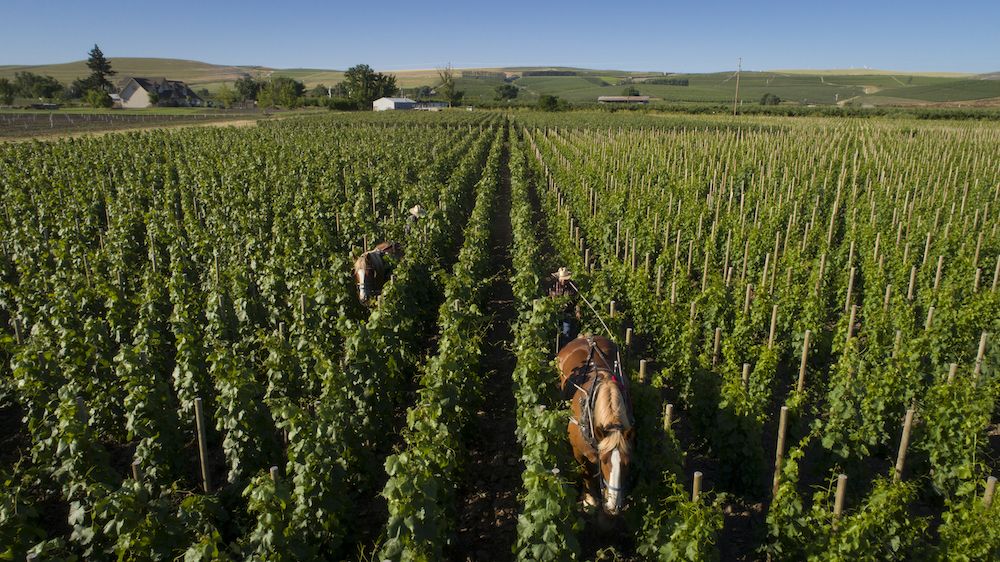
The Stones of the Ancient Riverbed
“I showed him the great vineyards of Châteauneuf-du-Pape, which are very well known in the southern part of France, where there are a lot of galets roulés, distinctive stones, from an ancient riverbed,” Christophe explained. “I was telling him that there are vineyards planted in very rugged, inhospitable terroir in France. He said, ‘Well, I know where there are stones like that in the Walla Walla Valley.’ I was supposed to be leaving the next day, and instead, we drove to the Oregon side of the valley, and I spotted a 10-acre piece of land between all of the different orchards there. There were no other vineyards there at that time. I said, ‘This is it.’”
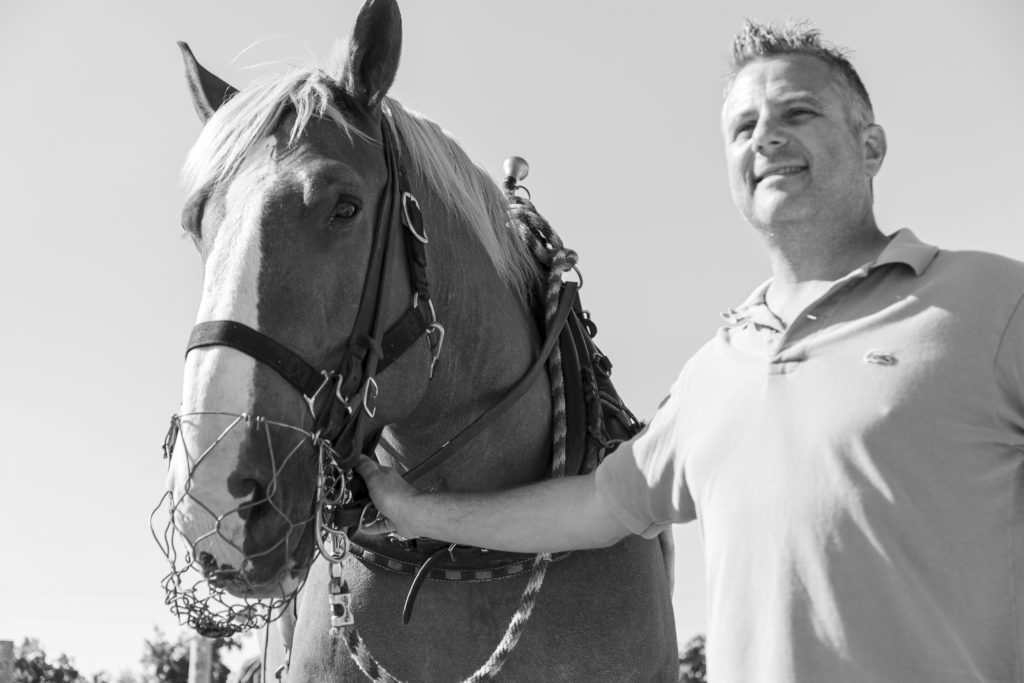
Christophe purchased the land in 1996 and planted Cayuse Vineyards on those 10 acres. By 2001, the vineyard had grown to 45 acres. Today, they produce 4500 cases under the Cayuse label, with a waitlist of over 15,000.
Strategic, thoughtful farming means we care not only for our vineyards but for our entire local ecosystem, ensuring a future for generations to come.
-Joel Solokoff, Equine and vineyard manager
Biodynamic Farming on the Vineyard
In 2002, Christophe became the first to implement biodynamic farming techniques in the Walla Walla Valley. It is a philosophy based on the principle of building a relationship with the land. “Most agriculture today is highly industrialized. It’s all very bottom-line oriented with inputs and outputs,” said Joel Sokoloff, the farm’s equine and vineyard manager. “Biodynamic farming is difficult to define; if you ask 10 farmers, you will get 10 different answers. But it is about building a healthy, vibrant soil environment. It’s a practice, not just farming, but of a relationship with the earth, based on soil life and soil integrity. Strategic, thoughtful farming means we care not only for our vineyards but for our entire local ecosystem, ensuring a future for generations to come.”
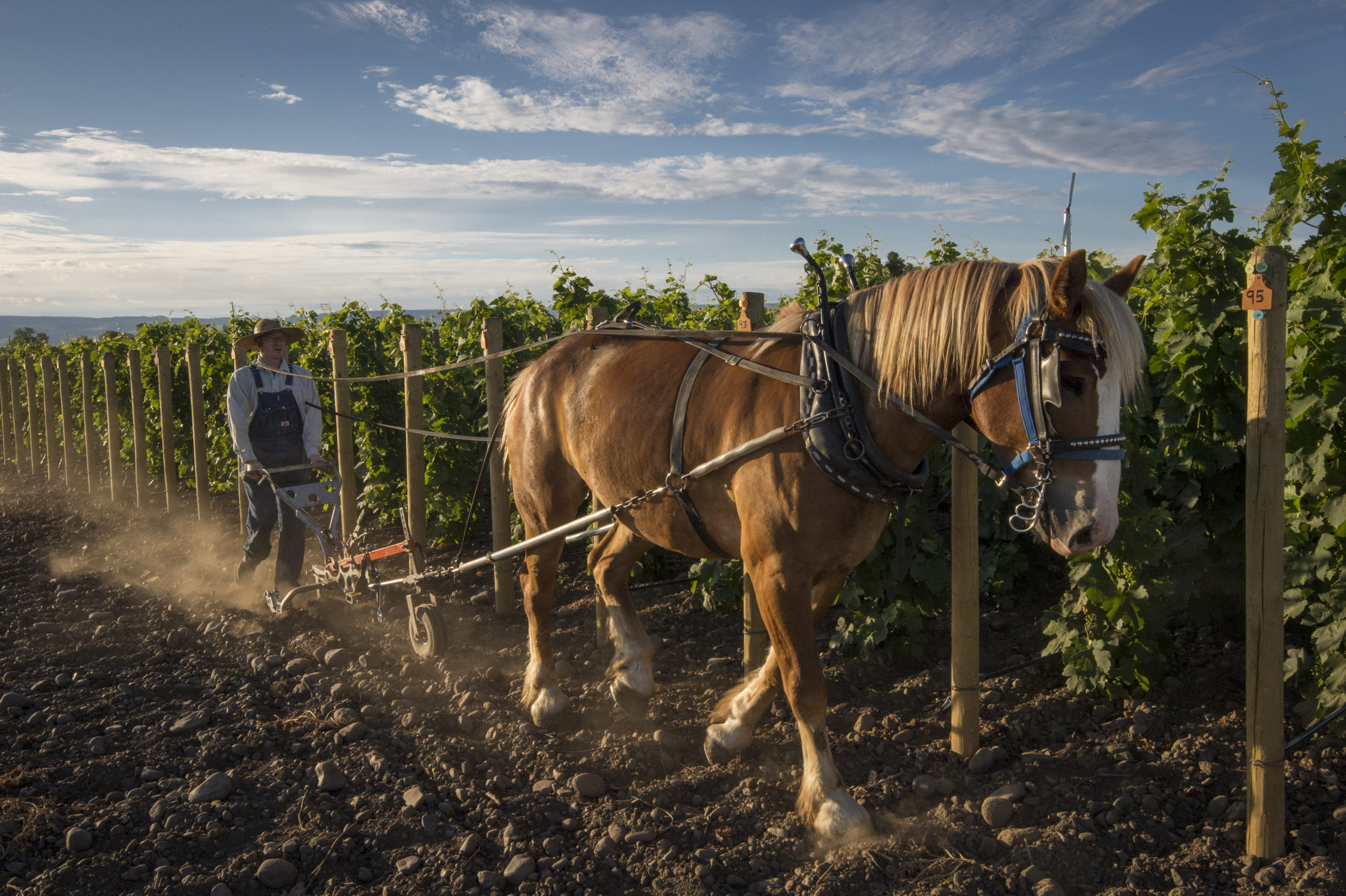
Based on the work of Dr. Rudolph Steiner, the movement works to approach the farm as a single, self-sustaining organism that thrives through biodiversity, the integration of crops and livestock, and the creation of a closed-loop system of fertility. Crops are planted and reaped according to a cosmic calendar that keeps step with the seasons, and homeopathic preparations are used on the soil, compost, and plants to help build up the farm’s “immune system.”
“One piece of this that is critical is to ‘close the circle,’ which is to foster a polyculture rather than a monoculture,” Joel continued, “We want many species represented, from plants to vertebrates—as diverse a set of complementary organisms on the farm as possible.” What that meant, for Christophe, was to bring in what he calls the gentle giants: draft horses.
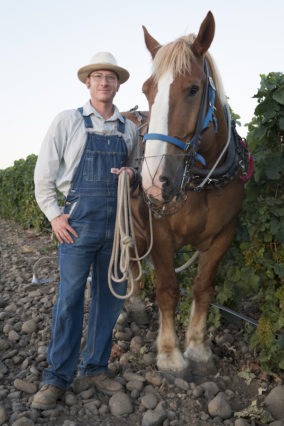
The team, led by Joel, is made up of four teamsters working with six draft horses: four Belgian and two Percheron. The horses trained for about a year in harness prior to their arrival and finished their training at the vineyard, where they each learned their particular job.
At the genesis of the project, Christophe planted a new, high-density vineyard. “We planted a vineyard called Sur Echalas, which in French means “on the stake.” It’s very narrow for the horses to navigate the rows,” said Christophe. “It really gives an even stronger sense of terroir, of the DNA of the place in the wine.”
The Tradition of the Horse
For centuries on his family’s farm in France, the horses were in the fields working. “My grandfather walked with the horses until they were retired in 1957, so my father remembers the horses being retired in the pasture but never worked with them himself. There is a gap of a generation. There is such a tradition in America of the horse. With Horsepower Vineyards, we wanted to create a new approach, a new concept. I want to push the envelope. It’s about being curious, doing something different to see what it will be like. The only way to see what’s going to happen is to just do it,” exclaimed Christophe with infectious enthusiasm.
“The wines coming from those vineyards are really amazing, and even though it’s from the same terroir as Cayuse, the same ancient riverbed of the Walla Walla River, the wines are completely different in the mouthfeel, they are more Old World. There’s a real sense of place. I really love those traditional wines from France, and that’s what this is, a young tradition. We’ll protect these vines with our gentle techniques, and we will one day have 100-year-old vines as there are in France.”
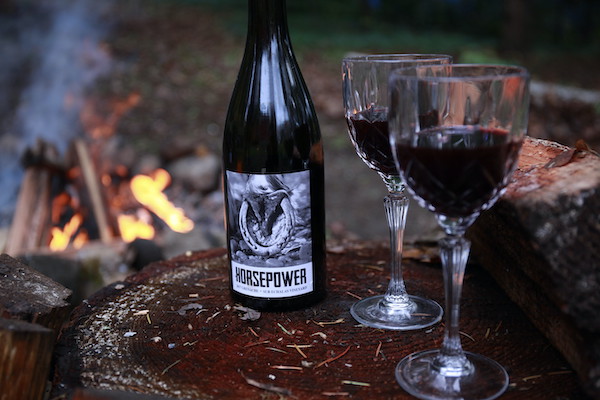
Special for EQLiving readers: Though most of Christophe’s wines are waitlisted, he has extended an exclusive code for EQLiving readers. Visit Horsepower Vineyard’s website, click on “Contact us” and hit “sign up” for the wait list, then add the code “EQUESTRIANLIVING” in the registration window, and someone will contact you to purchase a three-bottle pack of High Contrast Vineyard Syrah, priced at $121 per bottle.
